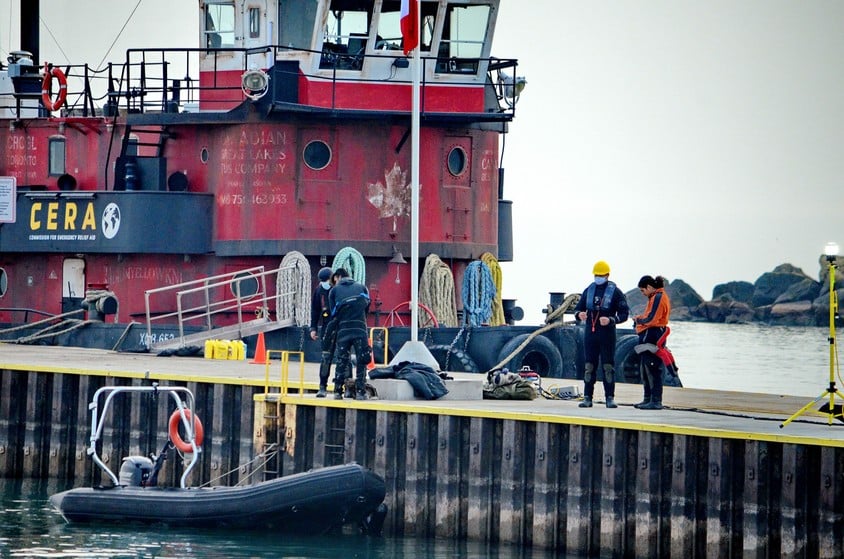If you are a seaman who has been hurt on the job, you are entitled to maintenance and cure costs, regardless of who was to blame for the accident. An experienced Jones Act maintenance and cure lawyer at the Law Offices of Preston Easley, APC can assist with your case.
Maintenance and cure benefits are not intended to be permanent. They last only as long as you require medical treatment that can still improve your condition. Your employer may have their own version of your health situation, and they could challenge your continued eligibility for these costs, forcing you to fight back legally.
Contact a Jones Act maintenance and cure attorney at the law offices of Preston Easley, APC by calling us at (310) 773-5207 when you have any issues after an accident on a ship. We can help explain this complex area of the law and fight to defend your legal rights.
What Are Maintenance and Cure Benefits?
A seaman who was injured on the job is entitled to maintenance and cure costs, regardless of whether anyone was negligent. Maintenance means that the seaman must be paid for their food and lodging. Cure requires their medical care to be covered. The employer has the obligation to cover maintenance and cure to the time where the injured seaman has reached the point of maximum recovery. The question is often when that point is reached because employers may attempt to hasten the determination because they no longer want to pay maintenance and cure.
How Does Maximum Medical Recovery Work?
Maximum recovery is similar to maximum medical improvement in a workers’ compensation case. Here, maximum recovery is when the injured seaman’s condition will not improve any more after further treatment. Until that point, the seaman must keep being paid maintenance and cure. The key is that treatment is designed to improve the seaman’s condition, as opposed to being palliative in nature. When you can no longer continue to get better, your maintenance and cure benefits may end.
The employer has every incentive to decide to terminate maintenance and cure because it costs them money. However, the law places a heavy burden on the employer when they make this decision. They must provide unequivocal evidence that the seaman has reached maximum medical recovery to be allowed to terminate maintenance and cure.
Here, maximum medical improvement does not necessarily have anything to do with being able to go back to work. For example, in one case, a court determined that a seaman who had chronic heart problems had attained maximum recovery after they received a heart transplant.
Whether Your Benefits Can Be Stopped Comes Down to Medical Evidence
The law makes it clear that the decision to terminate maintenance and cure benefits is a medical one and not a legal issue. You are the one who has the right to determine who treats your injury. It would be your doctor who decides whether you have reached the point of maximum recovery. However, your employer may review medical records provided by your position and make their own determination that they no longer owe you maintenance and cure benefits.
Even if your treating physician has determined that you still need medical care, your employer or their insurance company may have their own opinion. It is possible that you may be asked to attend an independent medical examination, where you would be seen by a doctor who has been paid for by your employer or the insurance company. These examinations are often anything but independent, because the doctor relies on the insurance company for business. The results of the independent medical examination could complicate your ability to continue receiving maintenance and your benefits. Then, your case may be subject to litigation.
Still, your employer needs to be careful about how and when they terminate maintenance and cure benefits. If they have willfully failed to pay the benefits that you deserve, you may even be entitled to punitive damages in a lawsuit. Nonetheless, you must be prepared to fight back when your maintenance and your benefits are placed in jeopardy. It is a common occurrence that employers want to cut off your benefits early because they do not want to continue to pay. You may be required to provide your own evidence of your need for ongoing care that would entitle you to continue to maintenance and cure benefits.
Contact a Jones Act Maintenance and Cure Law Firm Today
If you have been injured in a ship accident, schedule a free initial consultation with a Jones Act maintenance and cure lawyer at The Law Offices of Preston Easley, APC. You can make this appointment by reaching out to us online or by calling us today at (310) 773-5207.

Preston Easley is a graduate of the United States Naval Academy in Annapolis, MD. He served five years of active duty as a Naval officer — three years as a deck officer on a fast frigate and two years as a patrol boat skipper. Mr. Easley also served aboard a tank landing ship in the reserves. Learn more here.












